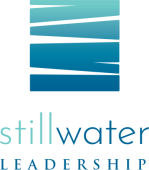What comes to mind when you think of the word conflict? For many people, the response is stress, frustration, discomfort … bad! When I lead workshops on navigating conflict, the first point I make is that conflict is normal and natural. It’s going to happen! The goal should not be to completely avoid it. If handled well, conflict can produce positive results: providing a source of innovation, energy, clarity, and reassessment. It can build cohesion and involvement. Conflict that’s handled poorly or allowed to grow unabated will have a negative impact. The fallout includes tension, stress, frustration, deepening differences, and diverting resources from more important issues.
The goal of successful conflict management in organizations (and anywhere for that matter) is not it’s elimination. The goal is to reduce harmful effects while maximizing positive outcomes. We can work with conflict in ways that are constructive or destructive – in ways that are active or passive.
Strategies for responding to conflict in active, constructive ways include perspective taking, creating solutions, expressing emotions when calm, reaching out to others and, when appropriate, making amends. Constructive, passive responses include reflective thinking, delaying your response, and adapting. We can all spot destructive, active responses that escalate conflict: needing to win at all costs/arguing vigorously, displaying anger, demeaning others, and retaliating. Many people have been taught throughout their lives to use passive responses to conflict: avoiding/ignoring, giving in/agreeing to avoid, hiding emotions, and self-criticizing/ruminating. Passive responses are just as destructive as the more easily recognized active responses.
How well are you and your team navigating conflict in constructive ways?

Practices
Pay attention to your habitual responses to conflict.
- Notice your physical/energetic response to conflict. How do you label it in your mind? Do you need to pause and center?
- Which constructive responses do you use most? How can you expand your repertoire?
- Which destructive responses do you use most? Can you refrain, center, and choose a more constructive response?
Pay attention to your organization’s and/or team’s responses to conflict.
- What does your organization reward, not allow?
- As a leader, how can you encourage more constructive responses to conflict?
The folks at Eckerd College are leaders in navigating conflict. Check out their whitepaper and “cost of conflict” calculator to learn more about how much ineffectively managing conflict may be costing your organization.





